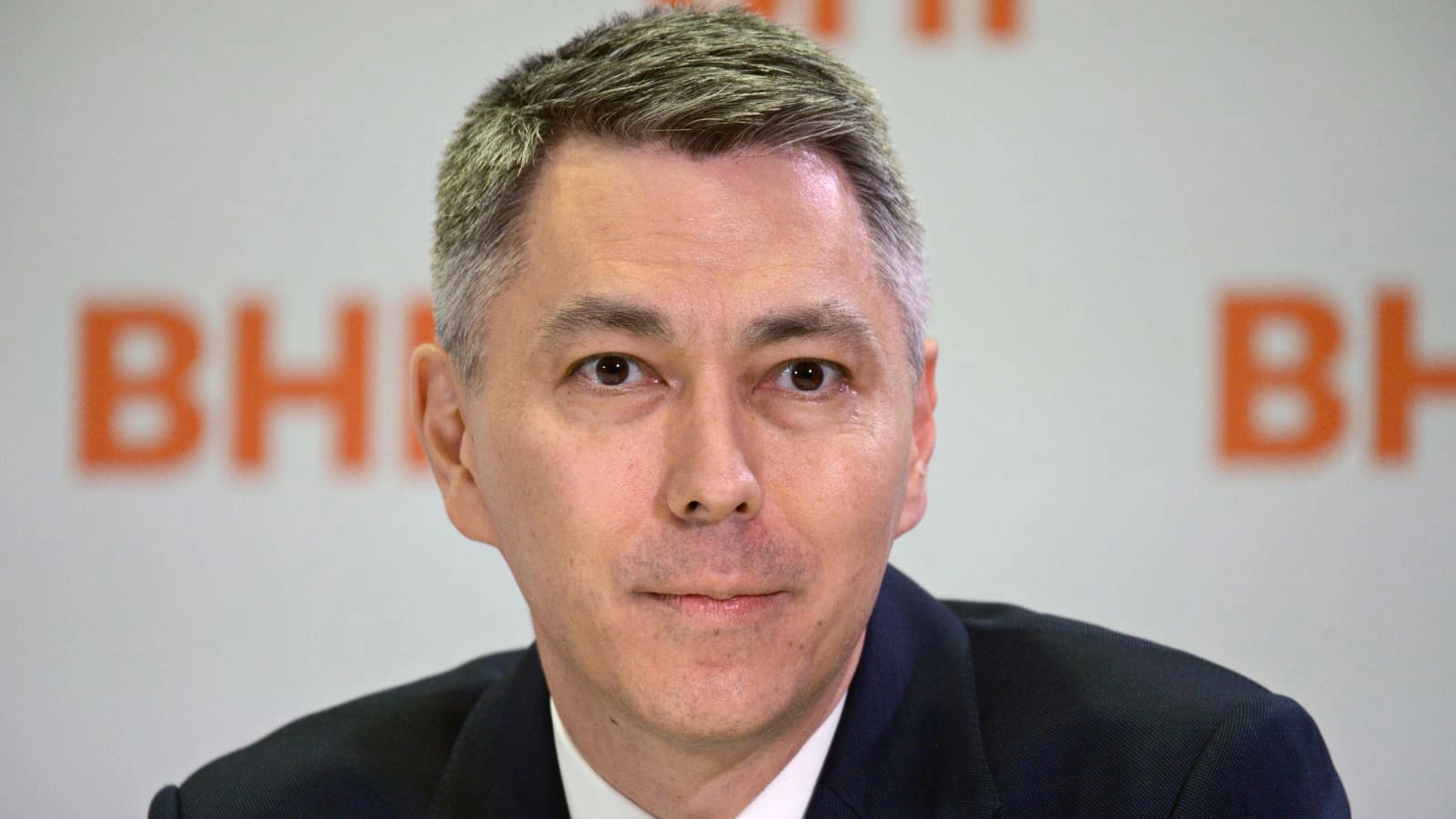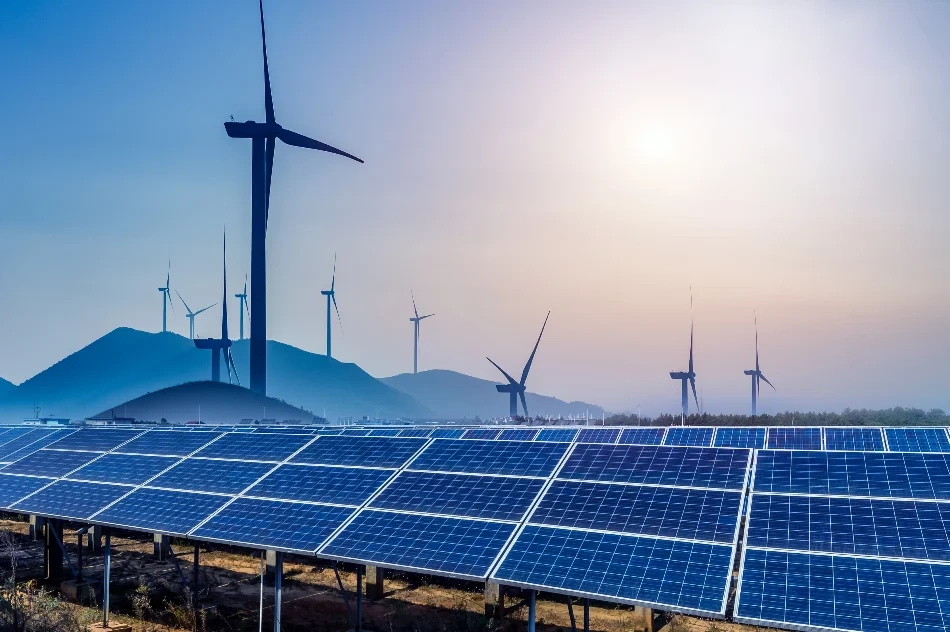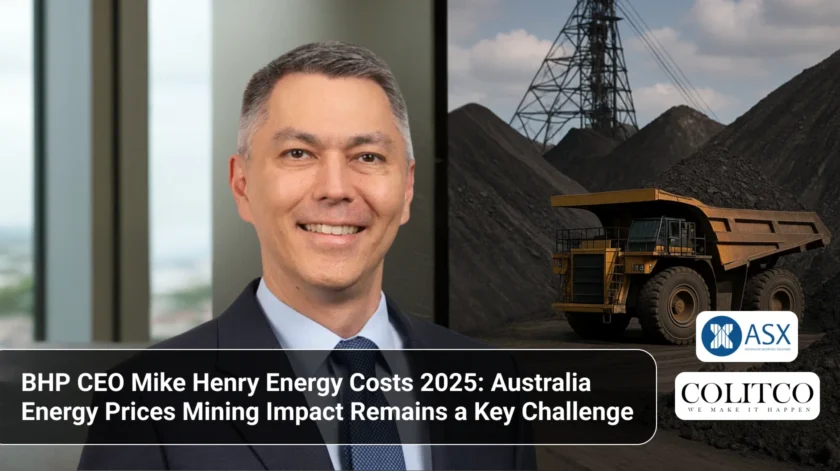Comparison with Australian electricity costs vs US raises competitiveness concerns for investment in major resources
Increases in energy costs put pressure on mining sector
Energy costs 2025 concerns brought new attention to Australia’s mining industry future with BHP CEO Mike Henry sounding a warning that Australia energy prices effect on mining is becoming increasingly obvious, with electricity prices continuing to be two to three times higher than other big mining centers.
Henry wrote Australian electricity prices to the US as 50% and 100% higher. The disparity has cost Australia in competitiveness in attracting and retaining foreign investment in mining. Increased costs, with rising demand for energy security, are being tough on new and current projects.
The mines chief demanded that competitive power is required for activities ranging from discovery to advanced processing. Without affordable and secure power, projects with large consumption levels, such as smelting, refining, and mineral processing, are made tougher. He emphasized that BHP and other industry players must be cautious before investing funds in Australia.
Henry’s remarks highlight the fact that energy prices are emerging as a principal force in shaping the direction of Australia’s mining investment. His remarks called for the need for some urgent policy and industry action if the nation is to remain competitive in the international marketplace.
Energy Affordability and Regulatory Delays
Besides energy affordability, Henry also raised concerns regarding the overall regulatory environment. In his view, procedures for the approval of new energy and mining developments in Australia are excessively slow and cumbersome. The delays, coupled with higher power prices, are discouraging companies from proceeding with big projects.
Henry stated that approval systems are now inefficient, leading to uncertainty for firms planning to make long-term investments. He warned that overlapping requirements among the state and federal governments are taking a toll on project timelines, which increases costs. For the mining industry, such delays mean losing market opportunities in markets where minerals demand is still high.
Australia’s regime, Henry contended, needs to be revamped for increased clarity and effectiveness. Streamlined procedures would reduce uncertainty and allow the nation to be more competitive relative to other jurisdictions. By invoking structural barriers, he pointed to issues that extend beyond energy price issues.
The BHP chief executive also referred to the combined effect of energy affordability and regulatory risk. Together, these effects have the potential to reduce Australia’s appeal as a location for foreign capital. Mining companies, with increasing costs, will be tempted to invest in those countries offering more stable conditions.
Comparison with International Energy Costs
Henry made explicit comparisons to show the growing cost gap. He pointed out Australian electricity prices vs US have risen substantially, making North America a more attractive region to invest in. With its lower energy prices and better policy settings, the United States is an even more attractive destination for energy-intensive industries.
Canada was also mentioned as another jurisdiction offering more competitive conditions. With cheaper energy and clearer policy direction, it is drawing investor interest in mining and related activities. Australia’s challenge is to match this competitiveness without compromising its own environmental and regulatory demands.
This fear is spread to other industries that share strong linkages with mining. Smelting and refining require secure and low-cost energy supply. When the cost of energy is no longer competitive, companies will relocate processing to locations where costs are cheaper. That will then truncate Australia’s role in the global supply chain for major minerals.
Henry also noted that private investment in Australia, as a percentage of GDP, has been softer than expected. Steep energy prices are contributing to this shortage, since companies factor in the risks of investing in costly environments. This trajectory, if untamed, would reduce the nation’s future production in resource exports and related industries.
Future of Mining Investment in Australia
Henry reasserted BHP’s priority on funding growth in key commodities, especially those that are critical to the energy transition. Copper, nickel, and other base metals remain the focal point of strategy. But he underscored that competitively priced energy is paramount in achieving long-term growth aspirations.

BHP CEO Mike Henry warns of Australia energy prices mining impact on future investment
He further stated that achieving net zero emissions goals depends on having access to affordable renewable energy. Without stable prices, the shift could put additional pressure on mining. Companies need to have clear boundaries to have secure power while reducing carbon emissions according to global commitments.
Henry said that if it does not re-shape, Australia might lose the chance to boost its position in global markets. The demand for forward-thinking commodities is on the rise, and countries with low operating costs are in a better position to draw in investment. In order to maintain its leadership, energy affordability has to be a central policy priority.
BHP continues to look for organic growth opportunities, but Henry emphasized that decisions on shifting reallocation of capital will always be determined by cost conditions. He warned that high electricity prices will limit the company from advancing its projects in Australia before its projects in other places.
The Link Between Energy Prices and Productivity
Henry also indicated that productivity is another factor that has been affected by high energy costs. He said that there is no way one can be competitive without reducing the cost of power expenses. Mining productivity growth would depend on good operations, but when energy expenses take a bigger portion of budgets, business operators have limitations.
He emphasized that the Australia energy prices mining influence is not only at the firm level. The overall economy is also dependent on mining jobs, investment, and income. Increased energy prices tend to reduce the efficiency of production and limit job creation, which affects regional communities.
The mining boss indicated that cheap energy is not only a business necessity but also a driver of economic security for the country. By keeping energy prices competitive, Australia can sustain productivity levels and be a world leader in mining.
Structural Policy and Taxation Challenges
Henry related prices for energy to inherent structural issues in the investment climate of Australia. He noted that corporate tax and royalty regimes are a burden on miners. Compared with other regions, these climates can further reduce the relative capacity of Australia to attract capital.
He said reforming these areas would balance the total cost environment. Even if energy is more critical, taxation and royalties influence the workability of the project. The stability in the policy and more competitive energy could make Australia attractive again to global investors.
Henry ordered that unless several cost drivers were dealt with, the mining sector would not be able to expand at the required rate. Prospective investors considering huge projects consider not only energy but overall stability and returns. Without reforms, investment decisions may continue to favor other countries.
Industry and Government Response
Henry’s action call on BHP CEO Mike Henry energy prices 2025 has ignited controversy in the industry. Other mining chiefs have also referenced comparable concerns about energy affordability and regulation complexity. The matter is beginning to gain momentum as more companies ponder their investment strategy in the face of increasing global competition.
Government responses have revolved around finding a balance between affordability and emissions targets. Policymakers need to balance favoring the development of renewable energy while keeping costs under control for industry. The path forward is about remaining competitive without compromising the environment.

Affordable renewable energy remains central to future mining growth in Australia
Industry groups are calling for cooperative action in addressing energy and regulatory concerns. They believe reforms should be crafted to encourage growth in mining but also ensure a stable energy supply. Addressing these concerns, government and industry would be able to create conditions for long-term stability.
The controversy continues as companies analyze future prospects in critical minerals. International demand remains strong, but investment conditions are changing. Energy affordability will remain at the center of deciding Australia’s role in the new situation.
Also Read: Shockwaves in British Boxing: Ricky Hatton, ‘The Hitman’, Dies at 46
Final Thoughts
BHP CEO Mike Henry energy prices 2025 statement has brought Australia energy prices mining sway back into the spotlight. He highlighted how Australian electricity prices versus US are becoming increasingly uncompetitive, threatening investment and growth.
Henry blamed excessive energy prices on broader problems of regulatory delays, taxation, and productivity. He underlined that without reforms being taken, Australia would fall behind countries that were offering more favorable circumstances.
With the demand for critical minerals continuing to rise, the profitability of the Australian mining sector will depend on such challenges being overcome. Australia’s future as a global mining leader will continue to be made possible by its need for cheap, stable, and accessible energy.
FAQs
Q1: What did BHP CEO Mike Henry say about energy costs in 2025?
BHP CEO Mike Henry energy costs 2025 comments warned that Australia energy prices mining impact is creating competitiveness concerns. He said Australian electricity costs vs US are up to twice as high, limiting investment in the mining sector.
Q2: How do Australian electricity costs compare with the US?
Australian electricity costs vs US are 50 to 100 per cent higher, according to BHP CEO Mike Henry. This difference makes the United States more attractive for energy-intensive industries and new mining projects.
Q3: Why are high energy prices a problem for Australia’s mining industry?
High Australia energy prices mining impact investment decisions because they raise operational costs. Mining companies may delay or relocate projects if power costs remain higher than in competing regions.
Q4: What solutions has BHP suggested for energy challenges?
BHP CEO Mike Henry called for stable, reliable, and affordable energy in Australia. He also linked energy affordability with faster regulatory approvals and clearer policies to attract global mining investment.
Q5: How do energy costs affect Australia’s role in critical minerals?
BHP CEO Mike Henry energy costs 2025 comments warned that expensive power could restrict growth in copper, nickel, and other critical minerals. More affordable energy is needed to secure Australia’s position in global supply chains.












